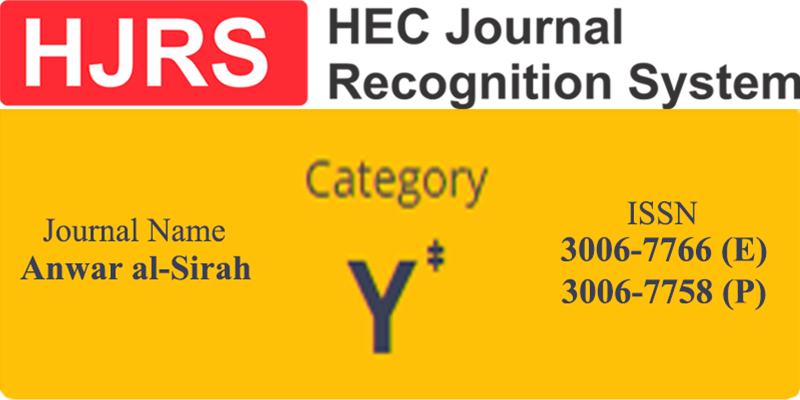عہد نبوی کے رفاہی اقدامات اور ان کے سماجی اثرات
Welfare Initiatives of the Prophetic Era and their Social Impact
Keywords:
Welfare, Institutions, Bayt Al-Mal, Prophetic EraAbstract
During the Prophetic era, the welfare institutions and social justice system laid the foundation for a transformative society that emphasized human service and equitable development. At the center of this system was "Bayt al-Mal," a treasury used to collect and distribute resources like Zakat (almsgiving), Sadaqah (charity), and other forms of wealth to support the needy, widows, orphans, travelers, and the poor. Zakat, a core Islamic pillar, worked to reduce economic disparity and promoted fair wealth distribution. Additionally, the institution of Waqf (endowment) allocated resources for ongoing welfare projects, including education, healthcare, and shelter for travelers. The Prophet Muhammad ﷺ implemented these welfare measures to create a society rooted in social harmony, economic equality, and justice, which has become a lasting model of Islamic welfare. Through the welfare systems and economic policies established, the Prophetic society ensured that even the marginalized received necessary support, thereby promoting a just and prosperous . The Prophet Muhammad's (PBUH) economic reforms laid the foundation for a strong and just social system, where welfare institutions played a crucial role. Through these initiatives, the needs of the poor, orphans, and widows were met, fostering social justice and harmony. This system remains a guiding example of Islamic societal principles today. In this article, various welfare initiatives are discussed, including the Institution for the Settlement of Migrants (Muhajireen), Al-Masjid an-Nabawi, Suffah as an Educational and Welfare Institute, Bayt al-Mal as a Welfare Institution, the system of Zakat and Sadaqah, urban facilities, water supply projects, healthcare welfare institutions, urban beautification and environmental policy, and the establishment of roadways.
Downloads
Published
How to Cite
Issue
Section
License
Copyright (c) 2024 Dr. Hafiz Muhammad Ishaq

This work is licensed under a Creative Commons Attribution-NonCommercial 4.0 International License.
Copyrights of all research papers published in Journal of the 'ANWĀR AL-SĪRAH are held by the auther(s). However, as the 'ANWĀR AL-SĪRAH follows Open Access Policy under license CC by NC for global exchange of knowledge, readers are freely allowed to download, read and print the full text papers of 'ANWĀR AL-SĪRAH without prior permission from the 'ANWĀR AL-SĪRAH or the author(s) as long as they acknowledge/cite the 'ANWĀR AL-SĪRAH as the original source.


